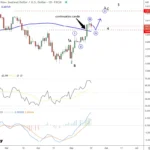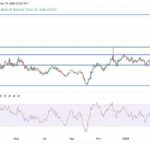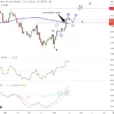
Another “Oops!” Moment in Shanghai
Is there anything the Chinese authorities haven’t tried yet in their attempt to manipulate the Shanghai stock market back up again? Off the cuff there’s nothing we can think of, except maybe shutting the market down entirely.
As we have previously pointed out, Chinese investors have fallen prey to the “potent directors fallacy” (a fortuitous term once coined by Robert Prechter) – in fact, China is currently a prime example of this fallacy in action. The term essentially describes the misguided belief that political authorities can somehow suspend economic laws or will always be successful in manipulating financial market trends.

A Chinese retail investor, evidently shocked that the potent directors still can’t keep prices from falling
Photo credit: China Daily / REUTERS
The truth is that they can never stop a primary trend from unfolding. This is not to say that they cannot succeed in manipulating market prices at all – in fact, they will usually succeed in doing so over quite lengthy time periods. Given that the authorities have control over money supply growth and administered interest rates, they can certainly provide the necessary tinder to make asset prices rise or stop them from rising. But preventing a decline of an overvalued bubble market in which thousands of inexperienced traders are long on margin is a very tall order indeed, and the actions taken by the authorities appear to be backfiring in this case.

The Shanghai Composite falls by nearly 8.5% overnight – click to enlarge.
The biggest mistake the authorities made was to ban certain investors from selling. The victims of this edict were mainly institutional investors in China, over which the authorities can exert leverage relatively easily. This immediately raises a rather vexing question for every other investor, namely: will they ban me from selling next? The rational reaction to this dilemma is “let me get out at the earliest opportunity”.
Similarly, new buyers are now reluctant to buy the dip, because they must also fear that they could eventually end up locked into the market by government fiat. Obviously this is a fate one would rather avoid. Foreign investors with flexible investment strategies such as hedge funds are likewise scared off, as they are no doubt aware that they are usually among the first to be assigned the role of scapegoats.
However, as we have also pointed out previously, there is very likely no way the authorities can prevent a bust in China at this point. Here is a video of Asianomics Deputy Chief Economist Sharmila Whelan discussing China’s emerging bust on Bloomberg. She’s right in our opinion, and a major reason why malinvested capital is now suddenly unmasked in China is that the government’s laudable attempts at reform have had the side effect of dramatically slowing the country’s money supply growth rates:















